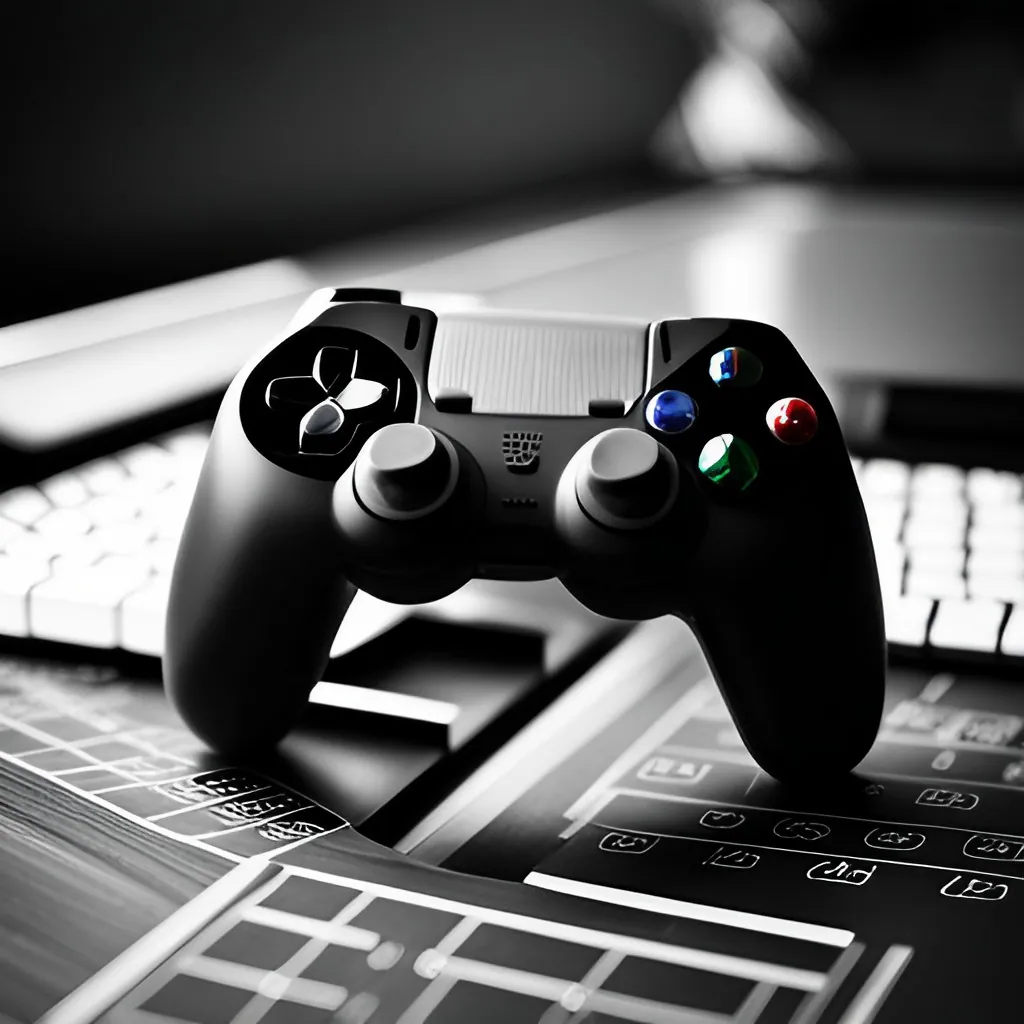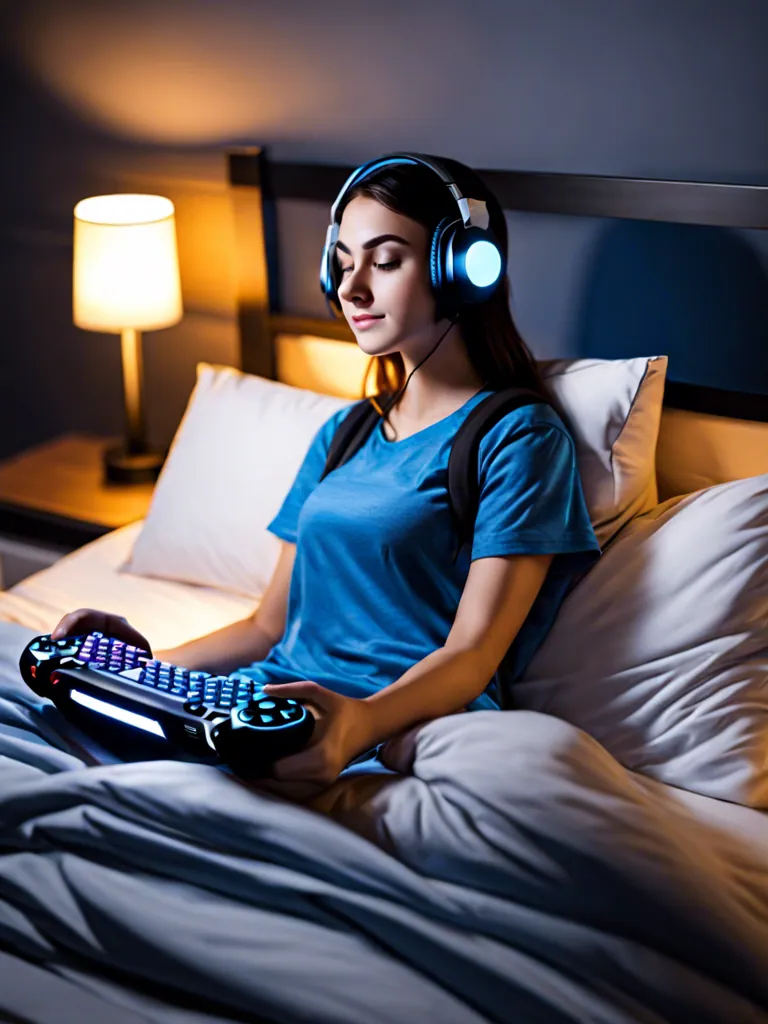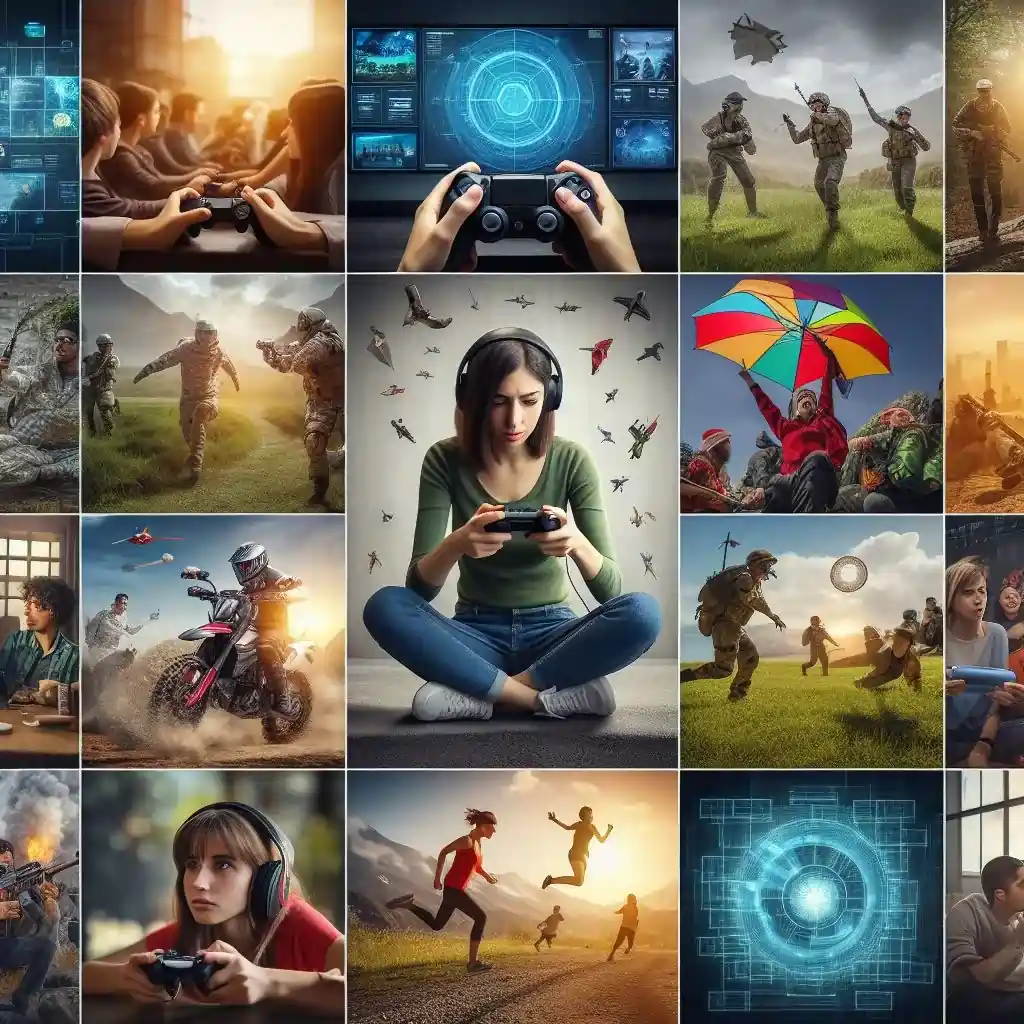In today’s era, it’s common, for our offline lives to overlap. This is particularly evident in the world of gaming, where immersive virtual realms provide an outlet from the routines and pressures of existence. Nevertheless, it is crucial to find an equilibrium between our escapades and real-world obligations. This can be quite a task for gamers who must navigate their commitments to work family and their love, for gaming.
Table of Contents
Introduction:

History of the Concept
The concept of “Mama Needs Mana” originated from the idea that many adult gamers, particularly parents, struggle to find time for their beloved pastime amidst their many responsibilities. It recognizes gaming as a legitimate form of escapism and stress relief, as reading a book or watching a movie might be to others.
The Allure of Gaming
Gaming holds a unique allure, offering immersive worlds where we can be heroes, villains, or anything in between. It provides social connections, challenging tasks, and a chance to unwind and escape the real world for a while. This form of digital entertainment has become a significant part of our culture, captivating the hearts of millions worldwide.
The Real-Life Juggle
However, the challenge lies in balancing this escapism with real-life responsibilities. Gamer with families, jobs, and other commitments can find it hard to manage their time effectively. The desire to delve into their virtual worlds can conflict with the pressing demands of everyday life.
Mama Needs Mana: Finding Balance
“Mama Needs Mana” signifies the quest to find this balance. It’s about recognizing the importance of taking time for oneself while ensuring life’s necessities aren’t neglected. The key is moderation, thoughtful scheduling, and understanding that both our real and virtual lives can coexist without one overpowering the other.
In the following sections, we’ll explore practical strategies to achieve this equilibrium, ensuring gaming remains an enjoyable hobby without sidelining life’s other vital aspects.
Personal Impact of Gaming
Gaming has had a profound impact on my life, becoming more than just a pastime. It has grown into a crucial piece of my identity, impacting the way I perceive the world and interact with others.
Gaming as Engagement
Gaming keeps me engaged, acting as a captivating outlet for creative expression and strategic thinking. Whether I’m solving intricate puzzles or immersed in a compelling narrative, gaming consistently presents fresh challenges. It’s a dynamic sphere where new adventures await at every turn.
Mental Stimulation through Gaming

Apart, from the excitement of playing games gaming offers stimulation. It demands reactions, strategic thinking, and analytical skills that are equally valuable in life as they are, on the screen. Moreover, it’s a platform that fosters curiosity and encourages me to explore ideas beyond boundaries.
Cultural Awareness and Gaming
Gaming also provides a window, into cultures and people. With games developed around the world, I’ve had the opportunity to explore diverse stories, settings, and characters. Furthermore, online gaming has allowed me to connect with individuals from all walks of life promoting a shared understanding and respect among us.
In summary, gaming goes beyond entertainment. It serves as a platform for learning, social connections and personal development. While finding the balance, between gaming and real-life responsibilities can be challenging “Mama Needs Mana” represents the pursuit of this equilibrium. By recognizing the importance of both our virtual lives we can lead satisfying and enriching existences.
Strategies for Balancing Gaming and Life
Striking a balance between gaming and life can be a daunting task, especially for passionate gamers. However, certain strategies can enable you to enjoy gaming while staying on top of real-life responsibilities.
Be Passionate About Your Work
Being passionate about your work, whether it’s your career, studies, or household chores, can make these tasks less of a burden and more enjoyable. This passion can fuel your motivation, making it easier to allocate time for work before going into the world of gaming. Just as you derive satisfaction and pleasure from gaming, seek to find the same fulfillment in your work.
Set Sensible Objectives
A great way to find a balance, between gaming and real life is by setting goals. It’s important to have objectives for both your responsibilities in the world and your gaming accomplishments. For example, you can strive to complete a task or project before rewarding yourself with a designated amount of time, for gaming. Having goals helps give you a sense of purpose and ensures that you don’t lose track of time while gaming.
Locate the Right Resources
It’s crucial to have the right resources at your disposal to make the most of your time. For your everyday tasks, this could mean using productivity tools or apps to help manage your schedule. In terms of gaming, resources could range from walkthroughs to help you advance quicker, gaming communities offering support, or even gaming hardware that enhances your gaming experience and efficiency. Leveraging these resources can ensure that you’re not wasting time on unnecessary tasks or hurdles.
Take Breaks and Put Distractions Away
It’s important to make sure you take breaks and minimize distractions both when gaming and when dealing with tasks in life. Taking breaks can prevent burnout improve concentration and boost productivity. Similarly reducing distractions, like turning off game notifications while you’re working or handling real-life responsibilities can help you stay focused. Remember, it’s about finding a balance. It’s not about giving up your love, for gaming but rather finding ways to incorporate it into your life in a way that complements your commitments.
Organizing Real-Life Actions

Striking a balance between the virtual world of gaming and the reality of day-to-day life requires not just mental adjustments, but practical strategies. These strategies include organizing your actions, creating reasonable expectations, breaking down complex work into manageable portions, and utilizing task lists tailored to a mother’s real-life mana gaming lifestyle.
Organize Your Actions
To effectively organize your activities begin by determining your priorities. Recognize the tasks that need to be accomplished their respective deadlines and the estimated time required for each. Arrange your tasks in order of urgency and significance emphasizing tackling the ones first. This approach ensures that even if you dedicate an amount of time to gaming you will have already completed the essential tasks beforehand.
Create Reasonable Expectations
Creating reasonable expectations goes hand in hand with organizing your actions. Don’t overburden yourself with an unrealistic workload that leaves no time for gaming or relaxation. Understand the time you have and allocate it wisely, making sure you have a healthy blend of work, gaming, and personal time.
Organize Complex Work into Manageable Portions
When confronted with tasks it’s common to experience a sense of being overwhelmed. However, a helpful approach is to divide these tasks into manageable segments. This technique, often known as “chunking ” can effectively transform tasks into less stressful ones. By accomplishing these tasks you’ll not only feel a sense of fulfillment but also be motivated to persist and tackle the remaining ones.
Task Lists for Mother’s Real-life Mana Gaming Lifestyle
Task lists can be a game-changer for mothers juggling gaming and real-life responsibilities. These lists serve as visual reminders of what needs to be done, helping you stay organized and focused. You could even gamify your task list, treating each completed task as a ‘level up’ or achievement in real life. This way, you bring the excitement of gaming into your daily routine, making chores or work tasks more enjoyable.
Taking Care of Yourself
In the pursuit of balancing gaming and real-life responsibilities, self-care often takes a back seat. However, it’s crucial to remember that taking care of oneself is an integral part of maintaining this balance.
Finding Calm After a Hard Day
After a demanding day managing tasks and obligations, it can be challenging to find a sense of tranquility. However, it is crucial, for both your mental well-being. One effective way to achieve this calm is by practicing relaxation techniques such as breathing, yoga, or meditation. These methods not only provide relaxation but also contribute to reducing stress and anxiety in the long run.
Engaging in gaming can also serve as a soothing activity. By immersing yourself in the world you can experience an escape from reality allowing you to unwind and alleviate stress. Nevertheless, like any activity moderation is essential here. It’s more important to use gaming as a tool, for relaxation than using it as an excuse to avoid real-life responsibilities.
Ensuring a Restful Night’s Sleep

Getting a night’s sleep is important, for taking care of your body and staying emotionally balanced which can help you be more productive, during the day. To make sure you get a night’s sleep it’s essential to have a consistent sleep routine and create a sleep environment.
This might mean having a bedtime avoiding screens before bed and making sure your bedroom is dark and quiet. So Your sleep can ensure that you’re well-rested and ready to tackle the next day’s tasks.
Remember, taking care of yourself is not a luxury, but a necessity. By finding calm after a hard day and ensuring a restful night’s sleep, you can better manage your responsibilities and enjoy your passion for gaming.
Nurturing Relationships in the Gaming Community
Nurturing relationships within the gaming community can significantly enhance your gaming experience and personal growth. Building these connections can provide support, camaraderie, and an opportunity to learn from diverse perspectives within the community.
Building Positive Relationships
Positive relationships are built on mutual respect, understanding, and shared interests. It’s important to be respectful and open-minded when interacting with others in the community. This includes respecting game rules, being considerate of other’s time, and being supportive during challenging game moments. Positive interactions contribute to a healthy gaming environment, making the experience enjoyable for everyone involved.
Learning from Others
The gaming community is a rich source of knowledge and skill. Engage in conversations, ask for advice, and be open to learning from other gamers. This can help you improve your gaming skills, broaden your understanding of different games and strategies, and keep you updated on the latest gaming trends.
Engaging in Collaborative Play
Collaborative play can strengthen relationships within the gaming community. Participating in multiplayer games or team-based challenges promotes teamwork, strengthens bonds, and enhances the overall gaming experience. It’s a fun way to engage with others and create memorable gaming moments.
Participating in Gaming Events
Participating in gaming events like tournaments, online meetups, and game launches can also help nurture relationships within the gaming community. These events provide an opportunity to connect with like-minded individuals, share gaming strategies, and celebrate the love for gaming.
Remember, nurturing relationships in the gaming community is about more than just gaming; it’s about being part of a supportive, respectful, and inclusive community.
Gaming and Real-Life Skills

One might not immediately link gaming with real-life skills development, but the connection is both fascinating and advantageous. Below we delve into some of the key real-life skills that can be honed through gaming.
Problem-Solving Skills
Gaming often presents players with complex scenarios that require strategic thinking and problem-solving abilities. Gamers must make fast, informed decisions to conquer challenges, developing their critical thinking skills in the process. This skill is transferable to real-life situations where problem-solving abilities are vital.
Social Skills
Online multiplayer games create platforms for social interaction, fostering the development of communication and teamwork skills. Gamers learn to cooperate, negotiate, and resolve conflicts, all of which are essential in personal and professional life.
Multitasking and Coordination
Games can demand attention to various stimuli simultaneously, enhancing players’ abilities to multitask. Fast-paced games also improve hand-eye coordination and reaction times, skills useful in activities like driving and sports.
Persistence and Resilience
In gaming, players often face difficult levels and powerful enemies. The determination to succeed and resilience in the face of obstacles are qualities that gamers develop and can apply to overcome challenges in real life.
Creativity and Imagination
Many games encourage creativity, whether it’s designing a character, building a world, or devising a game strategy. This creative involvement stimulates imagination and innovative thinking, skills that are beneficial in numerous real-life scenarios.
In conclusion, while gaming is primarily a source of entertainment, it can also be a tool for developing valuable real-life skills. The key is striking a balance between gaming and other life responsibilities. Remember, the skills you acquire in the virtual world can empower you in the real one.
Overcoming Stereotypes and Misconceptions
It is unfortunate but true that gaming, despite its numerous benefits, often falls victim to stereotypes and misconceptions. Addressing these can help foster a healthier attitude towards gaming and those who enjoy it.
The Isolation Myth
One common misconception is that gaming is an isolating hobby, often picturing gamers as individuals cut off from the real world. However, as discussed earlier, the reality paints a different picture. Online multiplayer games create platforms for social interaction, fostering communication and teamwork skills. Video games also unite diverse individuals through shared interests, overcoming geographical and cultural boundaries.
The Violence Connection
Another stereotype associates video games, particularly ones with violent content, with aggressive behavior in real life. While it is essential to ensure age-appropriate gaming, several studies have found no definitive link between violent games and real-world violence. Responsible gaming involves understanding that games are a form of entertainment, not a model for real-life behavior.
The “Waste of Time” Narrative
Many perceive gaming as a waste of time, overlooking the valuable real-life skills it can impart. As we’ve seen, gaming can enhance problem-solving skills, and multitasking abilities, and foster creativity and resilience. By debunking this misconception, we can better appreciate gaming as a worthwhile activity.
The Health Hazard Stereotype
The notion that gaming is inherently unhealthy is another stereotype to dispel. While excessive gaming without balance can lead to health concerns, moderate gaming combined with a healthy lifestyle (regular exercise, a balanced diet, and adequate sleep) is not harmful. Certain games can promote physical activity and mental well-being.
Overcoming these stereotypes involves dialogue, education, and openness to understanding the multifaceted world of gaming. As we shed these misconceptions, we can pave the way for a more inclusive and appreciative perspective on gaming.
Embracing a Wholesome Gaming Lifestyle: Strategies for Integrating Gaming and Life
Managing Your Time Effectively
Balancing gaming and life responsibilities begins with effective time management. Allocate specific hours for gaming, ensuring it doesn’t interfere with your work, studies, or personal commitments. It’s important to enjoy gaming, but not at the expense of other crucial aspects of your life.
Cultivating a Healthy Gaming Environment
A healthy gaming environment is crucial for a positive gaming lifestyle. This can involve ergonomic considerations, like a comfortable chair and position, as well as ensuring your gaming space is well-lit to reduce eye strain. Regular breaks are also a key, as they help reduce physical fatigue and maintain mental sharpness.
Incorporating Physical Activity
Intertwining gaming with physical activity can be beneficial. Consider taking a walk during gaming breaks, doing a quick workout session, or even playing games that encourage physical movement. This can not only counteract the sedentary nature of gaming but also boost your overall health and well-being.
Balanced Diet and Hydration
Nutrition is another aspect to not overlook. Snacking healthily while gaming, like opting for fruits or nuts over junk food, can make a world of difference. Keeping yourself hydrated is equally important, and can even help maintain focus during gaming sessions.
Socializing Outside of Gaming
While online gaming offers social interaction, it’s also important to maintain relationships outside of the gaming world. Spend quality time with friends and family, engage in different hobbies, and ensure that your social life remains diverse and balanced.
By embracing these strategies, gamers can lead a wholesome and balanced lifestyle, enjoying the best of both worlds. Gaming, when integrated properly, can be a fulfilling and rewarding part of life.
Conclusion
To wrap it up, gaming is far more than just a recreational activity. It can serve as a platform for skill development, promoting creativity, resilience, and problem-solving abilities. While stereotypes and misconceptions often overshadow the benefits of gaming, a balanced approach can ensure that gaming becomes an enriching part of our lives.
By managing time effectively, maintaining a healthy lifestyle, and fostering a conducive gaming environment, players can seamlessly integrate gaming with their daily routines. It’s all about striking the right balance between the virtual and real worlds, appreciating the unique attributes each has to offer.
As we continue to navigate the evolving world of gaming, let’s strive to challenge stereotypes, promote healthy gaming practices, and most importantly, enjoy the journey.
Frequently Asked Questions
What does “Mama Needs Mana” mean?
“Mama Needs Mana” is a term often used within the gaming community, signifying the need for energy or power, typically in a gaming context. In real-life scenarios, it can be interpreted as a call for rejuvenation or a break from routine to engage in recreational activities like gaming.
How can I balance my gaming passion with real-life responsibilities?
Balancing gaming passion with real-life responsibilities involves effective time management. Allocate specific hours for gaming without interfering with work, studies, or personal commitments. Enjoy gaming, but ensure it doesn’t compromise important aspects of life like family time, professional growth, or self-care.
Are there any cognitive benefits to gaming?
Yes, gaming offers several cognitive benefits. It can enhance problem-solving skills, improve multi-tasking abilities, and foster creativity and resilience. Some games also promote strategic thinking and improve reaction time, thereby sharpening cognitive abilities.
How can I manage relationships while maintaining my gaming lifestyle?
Managing relationships while maintaining a gaming lifestyle involves maintaining a healthy social life outside of the gaming world. Spend quality time with friends and family, engage in different hobbies, and keep your social interactions diverse. Online multiplayer games can also be a social activity if played with friends or family.
Can gaming skills translate to real-life skills?
Gaming skills can translate into real-life skills. Problem-solving, strategic planning, resource management, and team collaboration in gaming can be quite useful in real-life scenarios, be it at school, work, or daily life challenges.
How do I address the stereotype of gamers being socially isolated?
Addressing this stereotype requires demonstrating the social aspects of gaming. Online multiplayer games foster communication and cooperation among players across the globe. Games often unite diverse individuals through shared interests, dispelling the notion of isolation.
Can gaming and real-life responsibilities coexist harmoniously?
Gaming and real-life responsibilities can coexist harmoniously. It’s all about balance. Set a gaming schedule that doesn’t interfere with your work, studies, or personal life. Remember to take breaks and engage in other activities to prevent gaming from dominating your routine.
How can I make my gaming lifestyle more holistic?
Making your gaming lifestyle more holistic involves integrating physical activity, maintaining a balanced diet, and ensuring regular sleep. Consider taking walks during gaming breaks or playing games that encourage physical movement. Snacking healthily and staying hydrated can also contribute to a more holistic gaming lifestyle.
Are there any success stories of gamers who have balanced gaming and real-life commitments?
Yes, there are numerous success stories of individuals who’ve balanced gaming and real-life commitments. Many professional gamers maintain successful careers while simultaneously excelling in the gaming world. Their stories serve as inspiration for striking a balance between gaming passion and real-life responsibilities.
How can I contribute to changing the perception of gamers in society?
To change the perception of gamers in society, promote the positive aspects of gaming. Share how gaming enhances cognitive skills, fosters social connections, and can be part of a balanced lifestyle. Debunking stereotypes and sharing success stories can also help shift societal attitudes towards gaming.






